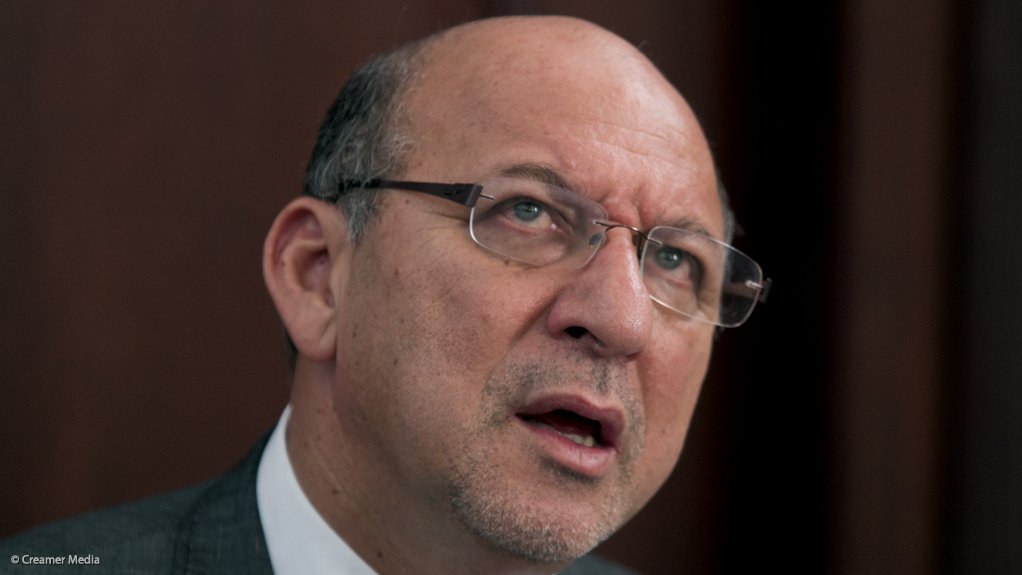The current lack of good corporate governance is negatively impacting on many of South Africa’s State-owned enterprises, according to former Finance Minister Trevor Manuel, who believes that working corporate governance could successfully mitigate risk.
Delivering the keynote address at the Deloitte Risk Conference 2017, on Tuesday, Manuel noted that, when it comes to risk management, the focus should be less on the independent auditors.
“Accountability must start with the internal financial management of companies,” he said, explaining that internal financial management was overseen by a financial director or a chief financial officer. This figure is supported by internal auditors, who report through an audit committee to a board.
Manuel said he had looked at the last few annual reports of a number of State-owned corporations and that he had seen the sign-offs of these reports and could not believe that such bad reports had been approved. “The failure of the system does not start with external auditors, it stems from internal problems,” he averred.
Manuel commented that the first step was dealing with these issues, which were the “unpleasant realities” that frequently presented themselves in these types of discussions. “Then there needs to be further analysis about what this means for the short and long term,” he said.
The former Finance Minister added that companies needed to avoid ‘short-termism’ and that they should not obsess over quarterly results. Instead, companies needed to realise that companies and economies needed a longer-term view, which he believes is a fundamental requirement.
“We are up against analysts who need that quarterly number because it just amplifies their importance in the equation,” he quipped.
Manuel noted that, short-termism and desperation often led people to make decisions about who benefited immediately, as opposed to ensuring instead that thorough analysis was undertaken to establish what a decent standard of living is.
Moreover, he remarked that the real focus needed to be on how boards function and how they signed off, and that if these systems were functional, they would go a long way to dealing with risk mitigation within the economy.
Meanwhile, Manuel also outlined a five-point framework to address the issue of risk mitigation. The first point was that risk was about a judgement on benefits and consequences for stakeholders. Factors, such as who are stakeholders, what are the benefits and consequences, and what information and instruments are required to deal with these issues, needed to be assessed.
Secondly, Manuel noted that companies had to have the ability to “read externally all the time”, part of which would be understanding and, to some extent, anticipating exogenous risks, including macroeconomic risks.
The third point related to how companies and State-owned entities communicated.
“One of the deep concerns that I have about many of the happenings occurring in South Africa currently relates to the fact that there is no communication. There is a need for clear, contextualised and trusted communication between leaders and society,” he said.
The fourth point of the framework pertained to people dimensions. Manuel noted that, regardless of how smart analysts and economists were, or how intensive their strategy sessions were, the quality of the strategy was entirely dependent on how well they were implemented. He also noted that implementation was reliant on people.
“You need good, independent thinkers who are willing to work through issues and build the required trust to ensure implementation and who can then measure the success of strategic implementation.
“Unfortunately, too many CEOs want acquiescent types of people and power relationships are frequently such that people just do what they think is required of them,” he lamented.
The fifth part of the framework pertained to accountability. In the company context,
who is responsible for what tasks needs to be established.
“Unless we focus on these kind of issues, we will not be able to internalise what risk mitigation is all about, as it is often viewed as an external event and not something that needs to be dealt with in-house,” stated Manuel.
EMAIL THIS ARTICLE SAVE THIS ARTICLE ARTICLE ENQUIRY FEEDBACK
To subscribe email subscriptions@creamermedia.co.za or click here
To advertise email advertising@creamermedia.co.za or click here











